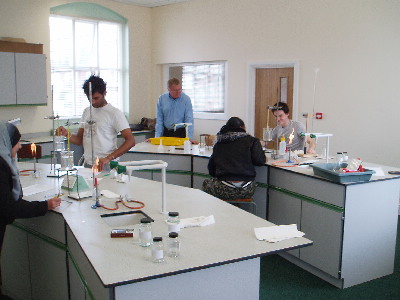Economic growth is nothing other than progress in science and innovation, for that’s how the ‘growth’ and ‘prosperity’ of a country is determined.
No science translates to no growth, no growth results to no economy, and no economy means no future.So, Science education is the backbone of innovation and it translates to the overall economic growth of a nation.
Real insight to science is all about gaining practical exposure into the subject and a majority of the parents are ready to take additional efforts to initiate their children into the wonders of science though hands-on experiments.
Text books and scientific theories, as standalones, fall significantly short when it comes to boosting ‘innovative thinking’.
Labs and field trips, fairs and exhibitions, virtual demos are known to be of significant help.
Aided with the support of innovative pedagogies, science education fosters ‘creative thinking’ that culminates into ‘innovation’.
In Indian context, reality witnesses considerable scope of improvement in science education.Infrastructure, pedagogy, curriculum, virtual labs, along with tapping and nurturing science talents – in short, the tools and approaches of science education need a major upscale to suit the new generation need and temperament. Unfortunately, in its current state, the focus is far more intense on securing high scores in entrance examinations rather than nurturing genuine scientific merits.
In order to accomplish scientific temper amongst students, working closely with the Innovation Foundation of India will encourage student innovations, just as boosting more media interactions will help to propagate student merits.
So, for the propagation of science education, various media are being used, radio, magazines, programs, organizing plays and programs.

This has increased the outreach of the students in a more interesting way.
This interests students more and also shows the application of knowledge that is taking place in the four walls of classroom.
An acute inadequacy of good colleges for science courses in India is what surfaced in a recent IMRB survey on opportunities for higher education in science in our country.
Availability of seats for higher education in science is also considered insufficient by almost half the parents.
This probably accounts for the immensity of private tuitions in science subjects, just another way to ensure that children do not miss out on the scarce opportunities.
Even the avenues and opportunities for research are considered to be significantly low in India.
Yet, curiously, as a career stream, science is still chosen as the best option.
There is an almost unanimous preference for career in science with most parents indicating preference for the same.
There is plenty of scope for introducing new teaching methodologies for science in schools, as many of the parents feel the need for the same.More avenues, such as fairs and exhibitions, need to be identified for children to display as well as enhance their knowledge in science.
For the teachers, it is not only important to teach what is given in the science textbook and what is prescribed in the syllabus, but also let the students think beyond this and explore various aspects of science in day to day life.Increase as much as possible daily connect to the child.Taking examples which can help students relate to what they already know and explore beyond it. Students prefer doing activities in the class than having a lecture which is a one-way traffic of info coming their way.But for an activity, students should be given liberty to think and decide the way of performing activity so that they start taking ownership of their learning.In a class, with the one way info students register it and as there is no discussion about it with teachers and other fellow students, students tend to forget easily.We all are answer-oriented. Many a times, we might not be aware of the procedure of doing an activity, but we know what answer we are expecting.
This shuts down the thinking capacity of students.
There is a need of trans-creating science without losing its scientific essence. We need to understand the things that we see, touch, make, use, feel
Sindu Aven,
Courtesy: Deccan Herald, May 1, 2014
